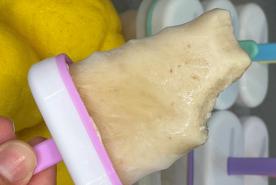March 31, 2023
It is important that certain individuals with kidney disease limit their fluid intake, but many people don’t understand why or where to begin. Anthony Reed, a former dialysis patient and kidney transplant recipient, and Catherine Wells, Nephrology Nurse Practitioner are here to break it down.
Why fluid restrictions are important
The kidneys are responsible for many important jobs including balancing fluids and removing waste from the blood. When the kidneys are no longer able to remove fluid and wastes, you may experience one or more of the following symptoms:
- Swelling (edema) in the feet, ankles, wrist, and face.
- Shortness of breath
- Cramping
- Headaches
- High blood pressure
“These are symptoms of a much bigger problem: Fluid in the body can start affecting other organs,” said Wells. “It can lead to heart failure and affect your lungs.”
Join the NKF Blog Newsletter
Get inspirational stories and kidney disease resources delivered to your inbox every month. You'll gain practical insights and expert advice to help you better understand and manage your kidney health no matter where you are on your kidney journey. Subscribe today.
Who needs to watch fluids?
Many won’t need to limit fluid intake until their kidneys start failing at stage 4 or 5 kidney disease.
“It's different for everyone. Some people lose filtering abilities when kidney function fails, but still make a lot of urine. Others lose both the filtering function and ability to remove extra water,” said Wells. “Everyone's fluid prescription will look different because it should be based on the amount of kidney function you have and how that kidney function is working. My general rule is if urine is coming out, you can put fluid in.”
Fluid prescriptions will also depend on treatment for end-stage kidney disease:
- Hemodialysis: Limit fluid to lower risk of low blood pressure, cramping, and stress on the heart during dialysis treatments.
- Peritoneal dialysis: May be able to drink fluids as normal however watching sodium and sugar intake can help control thirst and weight gain.
- Kidney transplant: Generally need to increase fluids, especially if transitioning from a fluid-restricted diet.
For Anthony, eating too much fluid and sodium resulted in a painful in-center hemodialysis session: “I did great until the last 5 minutes of treatment. Then, my toes started cramping and that feeling shot straight up to my nose.”
Tips for maintaining fluid restrictions
“Those on dialysis want to live a healthy life. Fluid management and following your treatments are wonderful ways to enjoy the life that you dreamed up. Dialysis can support that,” said Wells. “If you're not being consistent with treatment or become fluid overloaded, kidney disease is going to get in the way of the life you want.”
Six ways to support fluid restrictions:
- Speak with your healthcare team: Your healthcare team can help you find the right balance of fluids. Be sure to speak with them about sweating caused by heat or exercise and if you have an illness that causes fever, vomiting, or diarrhea. In these cases, you may need to increase fluids.
- Know your dry weight: Dry weight is your weight minus additional fluids. Most hemodialysis patients try to limit weight gain per treatment to no more than 2.2 pounds or 1 kilogram per day. Check your blood pressure along with daily weights. If it is low, contact your healthcare team as you may need more fluid or salt.
- Eat less salt: The body needs a balance between salt and fluids, so the more salt you have, the thirstier you'll become.
- Take medications as directed: Medications like diuretics may help maintain fluid levels.
- Don't skip treatments: Skipping dialysis treatments leaves excess waste and fluids in your blood, making you feel ill.
- Create new habits: Instead of drinking a large glass of water, aim for smaller amounts throughout the day. Reach for mouthwash or hard candies, like mints or sour balls, when a craving hits to reduce thirst.
"Learn upfront to budget (fluid for hemodialysis) and learn that if you mess up once, then that's a lesson, not a failure," said Anthony. "That's with anything in life. If you learn from it, then it's a lesson and you go on and move on."
Get the latest in kidney research and treatment
Join us as we highlight the latest in kidney research, bring you up-to-date on kidney care, and answer questions from patients to help them live well with kidney disease or a transplant. Subscribe to Hot Topics in Kidney Health.












